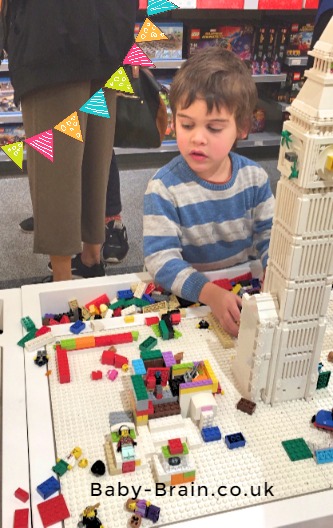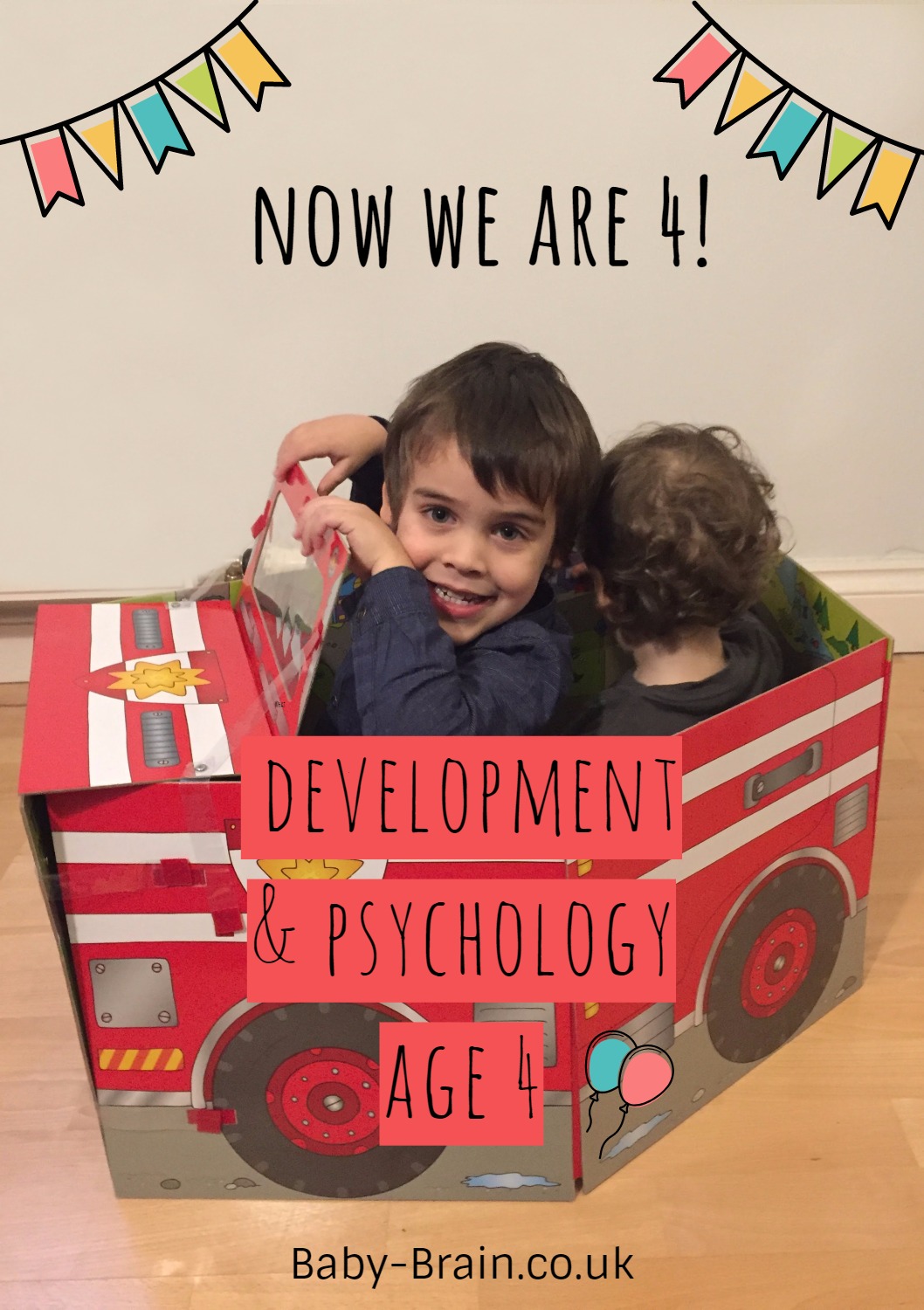Well, time keeps galloping along. Happy birthday to my little lovely! Not so little now…
What has happened in the last year? Well, we’re still at preschool, we’ve made little preschool friends, he’s mastered the potty for day and night and use of the “big toilet” while we’re out and for most of the time at home too. He’s engaging in a lot of small world play, Lego, creative thinking, can write most of his name, recognises all the letters of the alphabet, put on his shoes oh and probably more things I can’t think of right now to list…
But anyway, what does the literature indicate about typical 4 year old development? Here’s some info from Talking Point:
By age 4 children will usually
 :
:
-
Be able to listen to longer stories and answer questions about the story
-
Like simple jokes (in our household, he is developing lots of humour around farts and the word “bum” – great)
-
Ask questions using the words what, why and where
-
Describe things that have happened in the past, e.g. we went to the shop
-
3 and 4 year olds can probably form episodic memories (the ability to reflect on our past, and consider things that haven’t taken place yet – the future). Some research shows that 4 year olds can hold onto these memories for longer than 3 year olds who, in this research study could only hold onto the memories for a short amount of time (15 minutes) (Scarf et al, 2013)
-
In the next year, by age 5 we can expect a child to usually:
-
Be able to take turns in longer conversations
-
Understand words that describe a sequence such as “first we will go to the playground, then we need to go to the shops”
-
Socially, choose friends and those they play with
And so what did we get up to on our birthday?
Well it was the middle of the week so no big party on the actual day. We went to see a theatre show (fancy) called Stick Man (based on the book) – fun times at the LEGO STORE Leicester square, then for chips and milkshake at Shake Shack, and then home for birthday cake. I think he had fun…
- Scarf D., Gross J., Colombo M., Hayne H. (2013). To have and to hold: episodic memory in 3- and 4-year-old children. Dev. Psychobiol. 55, 125–132

